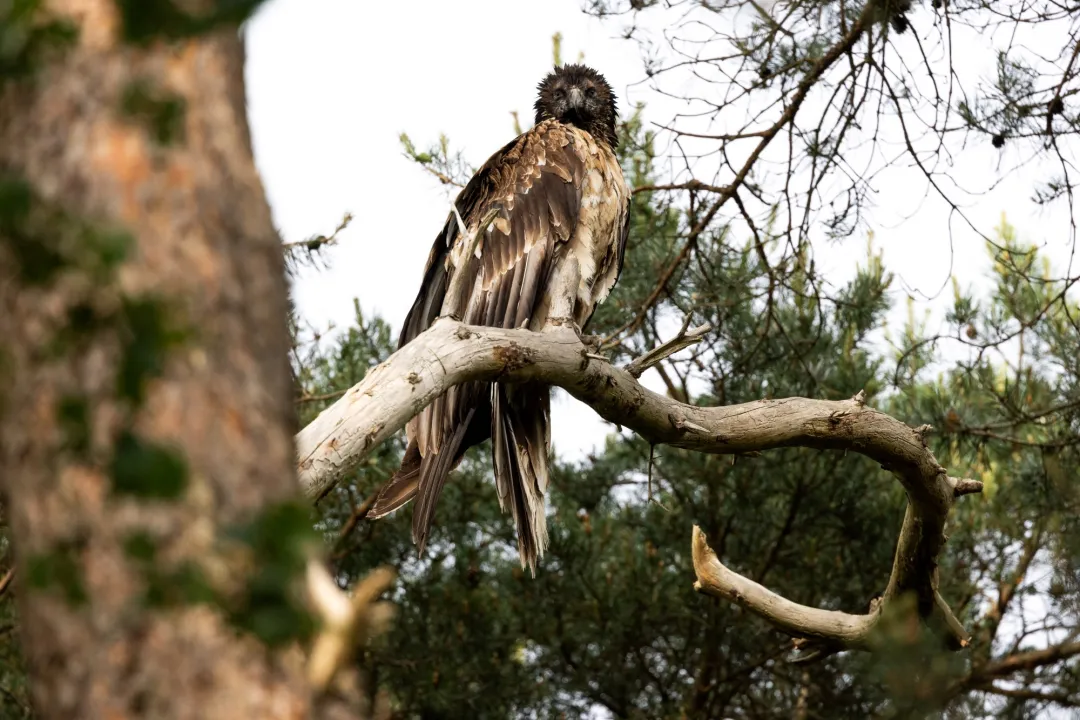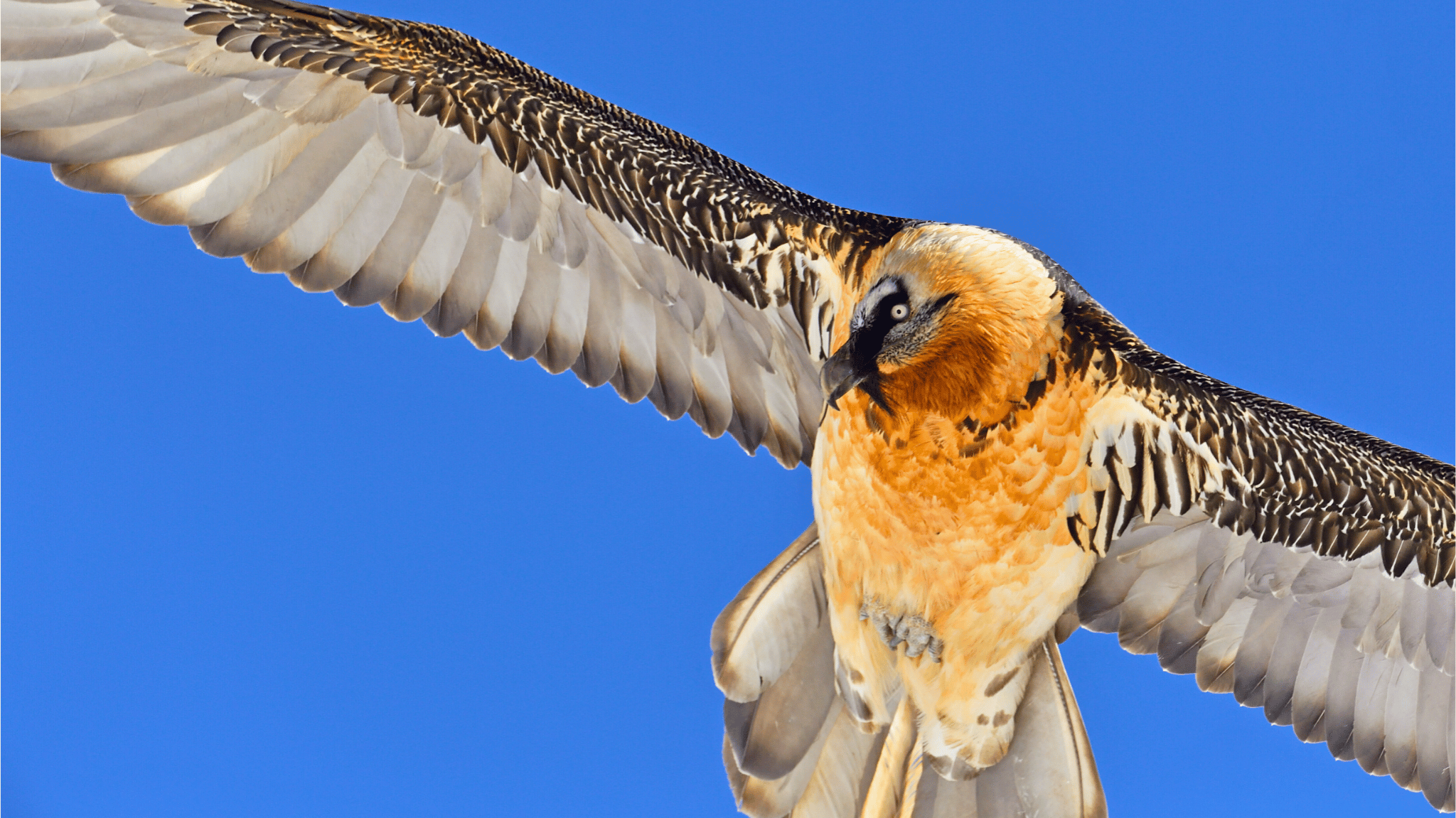People in Corsica warmly welcomed the two young female Bearded Vultures (Gypaetus barbatus) from Austria that were released on the island as a part of LIFE GypRescue project. Local school children named them “Piuma” (Feather) and “Culomba” (Dove) and were excited to meet the birds before they started their life in the wild.

Educating the community about Bearded Vultures
Before the release, there were two days of educational activities about Bearded Vultures planned in collaboration with local organizations. The students were very excited to learn about the vultures and were especially impressed by the size of their wingspan!


© LIFE GypRescue
Releasing Piuma and Columba in Ghisoni
On Tuesday, 4 June 2024, two female vultures arrived from the Richard Faust Breeding Center in Haringsee, Austria. They had hatched there in March 2024, less than a week apart, and were transported together to Corsica at three months old.
After arriving, the birds were presented to the public, including many curious school children from Ghisunaccia and Prunelli di Fiumorbu. The students named the vultures “Piuma” (Feather) and “Culomba” (Dove). Then, our partners from Parc Naturel Régional de Corse took the birds to the release site and placed them in artificial nests prepared for them.
Both vultures thriving and preparing for their first flights
Both birds have adapted well to their new surroundings. They are eating well and growing larger. They are exploring and getting ready for their first flights.
In the next few weeks, they will practice flying and leave their nests. The monitoring team along with volunteer students, will watch them from sunrise to sunset, collecting data, protecting them from threats, and feeding them from a distance.


© Martin Boone
Securing the Bearded Vulture population in Corsica
Corsica is home to an important Bearded Vulture population, one of the last surviving genetic pool of a former meta-population that included several islands and the Alps. However, the Corsican Bearded Vulture population has suffered a steep decline in the past 25 years.
The population went from 10 pairs in 2009 to only 3 in 2020. Today, there are only 4 pairs left. The loss of such a species would have serious consequences for Corsica and for the species in general. We would see the disappearance of an irreplaceable link in the inter-species relations of the Corsican mountains.
To secure the surviving population and its unique genetic pool, the Vulture Conservation Foundation (VCF), along with our partners in Corsica, Parc Naturel Régional de Corse (PNRC), and other partners, helped devise an emergency action plan to address the drastic decline of the species on the island – and that’s how LIFE GypRescue project began.
Within this project, we have been able to maximise our efforts to do everything we can to save the species. One important part of that is releasing captive-bred juveniles on the island, like Piuma and Columba. The birds released come from the Bearded Vulture captive-breeding Network (Bearded Vulture EEP), coordinated by us at the VCF.
Along with the releases, the LIFE GypRescue project also includes securing the genetic pool, through egg collection and inclusion in the Bearded Vulture EEP. Local partners are also working to increase the efficiency of artificial feeding, securing dangerous power lines and raising awareness for the importance of safeguarding the species.

Led by Parc naturel régional de Corse, in collaboration with Ligue pour la Protection des Oiseaux, Direction des systèmes énergétiques insulaires, Fédération des Chasseurs de la Corse du Sud and us at the Vulture Conservation Foundation, the LIFE GYPRESCUE project (LIFE20 NAT/FR/001553) came to life in 2021 to prevent the extinction of the Bearded Vulture in Corsica. The project team strives to increase the population through restocking actions, improve the natural reproduction and boost the island’s nesting capacity for the species, while preventing human-related disturbance and mitigating threats to reduce mortality.







